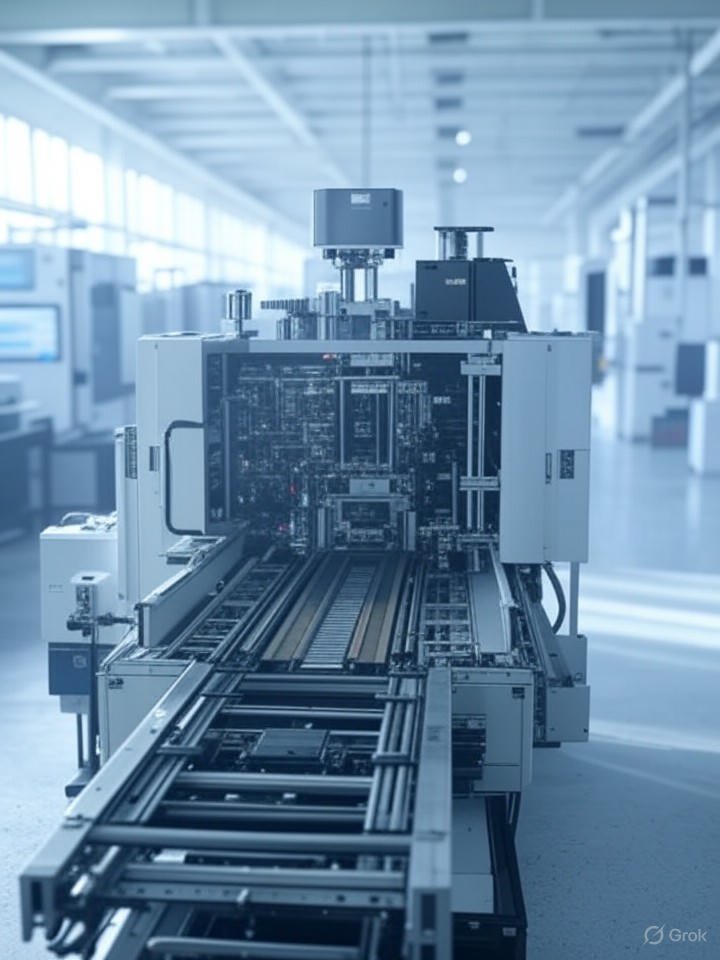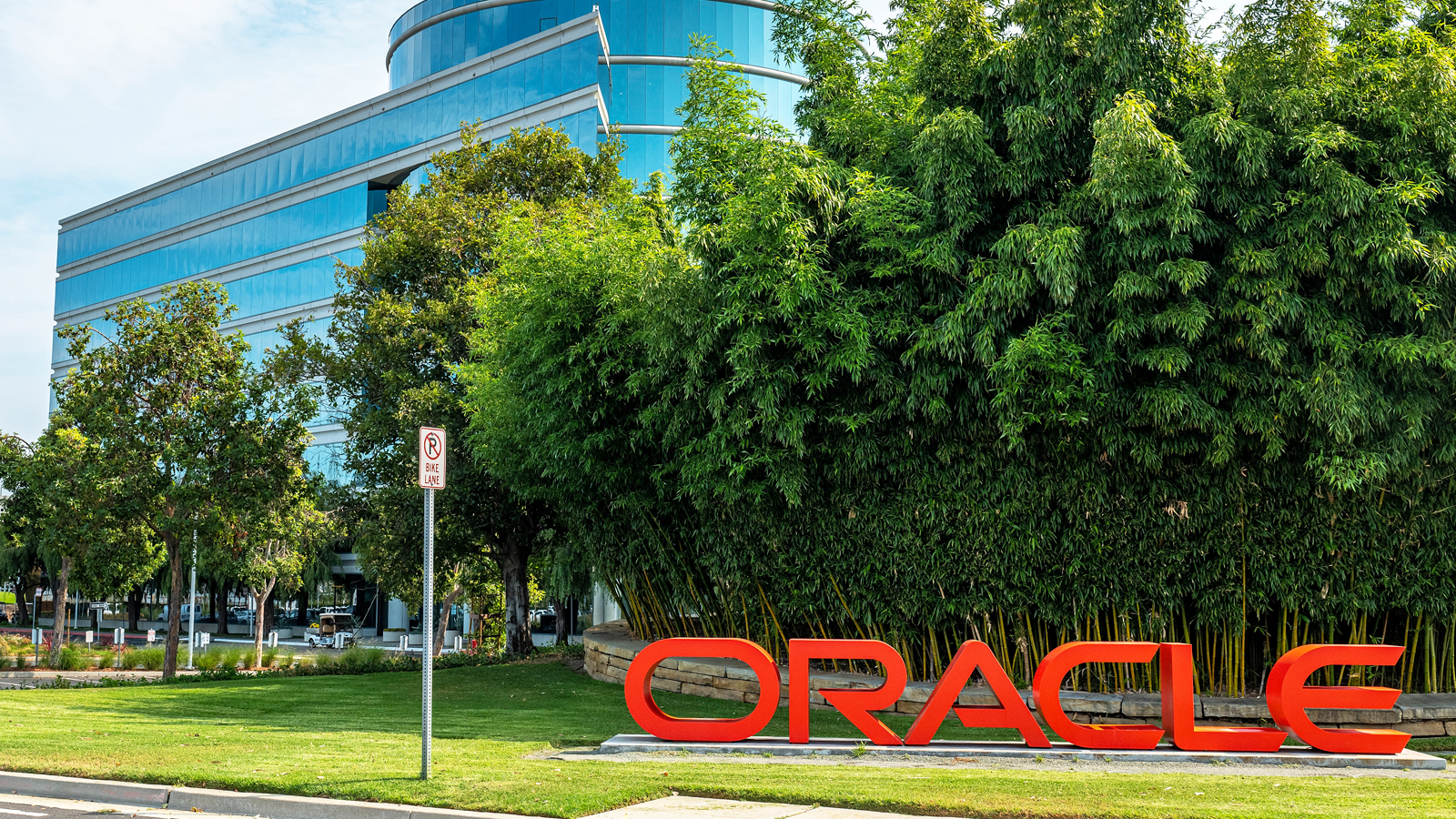Tools & Platforms
Flexential Hires Greg Ogle as CIO to Accelerate IT Transformation and AI Strategy
Data center veteran to drive AI integration and advance security across Flexential’s operations and customer-facing systems
DENVER, Sept. 10, 2025 /PRNewswire/ — Flexential, a leading provider of secure and flexible data center solutions, has appointed Greg Ogle as Chief Information Officer (CIO) to unify its internal technology systems, strengthen cybersecurity oversight, and lead the next phase of its digital and AI-enabled transformation.
Ogle brings more than 25 years of experience aligning enterprise IT with business goals, most recently as Vice President of Global IT Infrastructure and Cloud Operations at Equinix. In that role, he directed global networks, cloud platforms, and enterprise applications, and served a board-appointed term as the interim Chief Information Security Officer.
As Flexential’s CIO, Ogle will also oversee enterprise systems, cloud architecture, data governance, and AI integration. Additionally, he will shape IT policy and investment strategy, support compliance efforts, and modernize the company’s digital foundation. His appointment comes as demand for hybrid infrastructure and AI-ready capacity accelerates, and data center vacancy rates dipped to a low of 1.6% in primary North American markets earlier this year.
“Greg has a proven track record of leading IT in complex, high-stakes environments,” said Ryan Mallory, President & COO at Flexential. “He brings the operational discipline and forward-looking vision we need as we embed AI more deeply into our technology and processes. Greg’s leadership will ensure our systems are more intelligent, resilient, and efficient, enhancing both the employee experience and the way customers engage with our services.
Ogle’s immediate focus will be on unifying Flexential’s technology stack, building a standardized architecture for digital services, and embedding AI across IT operations. His broader strategy includes streamlining platform portfolios and engineering processes, as well as reinforcing governance through centralized tools and policies.
“Flexential is at a pivotal moment, where the convergence of AI, cloud, and hybrid infrastructure are reshaping how enterprises operate,” said Greg Ogle, CIO at Flexential. “I’m excited to build on Flexential’s strong foundation to deliver technology that is smarter, more secure, and more connected. My focus will be on ensuring our digital backbone not only supports today’s needs but also provides the resiliency and trust our customers require as we prepare for the opportunities of tomorrow.”
Ogle’s appointment follows a series of recent leadership moves at Flexential aimed at supporting its long-term infrastructure strategy. In July, the company appointed Thomas Bailey as Vice President of Energy and Matthew Baumann as Vice President of Site Acquisition to expand development capacity and secure long-term power access. Flexential has also raised approximately $1 billion from GI Partners, GI Data Infrastructure, Hamilton Lane, and Morgan Stanley Infrastructure Partners in the last 12 months to support its continued expansion.
For more information on Flexential’s secure infrastructure and flexible IT solutions, visit www.flexential.com.
About Flexential
Flexential empowers the IT journey of the most complex businesses by offering customizable IT solutions designed for today’s demanding high-density computing requirements. With colocation, cloud, connectivity, data protection, and professional services, the FlexAnywhere® platform anchors our services in 40+ data centers across 18 highly connected markets on a scalable 100Gbps+ private network backbone. Flexential solutions are strategically engineered to meet the most stringent challenges in security, compliance, and resiliency. Experience the power of IT flexibility and how we enable digital transformation at www.flexential.com.
Media Contact
Alison Brooker
Corporate Marketing
[email protected]
Christian Rizzo
Gregory FCA for Flexential
[email protected]
SOURCE Flexential

Tools & Platforms
AI: The Church’s Response to the New Technological Revolution

Artificial intelligence (AI) is transforming everyday life, the economy, and culture at an unprecedented speed. Capable of processing vast amounts of data, mimicking human reasoning, learning, and making decisions, this technology is already part of our daily lives: from recommendations on Netflix and Amazon to medical diagnoses and virtual assistants.
But its impact goes far beyond convenience or productivity. Just as with the Industrial Revolution, the digital revolution raises social, ethical, and spiritual questions. The big question is: How can we ensure that AI serves the common good without compromising human dignity?
A change of era
Pope Francis has described artificial intelligence as a true “epochal change,” and his successor, Pope Leo XIV, has emphasized both its enormous potential and its risks. There is even talk of a future encyclical entitled Rerum Digitalium, inspired by the historic Rerum Novarum of 1891, to offer moral guidance in the face of the “new things” of our time.
The Vatican insists that AI should not replace human work, but rather enhance it. It must be used prudently and wisely, always putting people at the centre. The risks of inequalities, misinformation, job losses, and military uses of this technology necessitate clear limits and global regulations.
The social doctrine of the Church and AI
The Church proposes applying the four fundamental principles of social doctrine to artificial intelligence :
-
Dignity of the person: the human being should never be treated as a means, but as an end in itself.
-
Common good: AI must ensure that everyone has access to its benefits, without exclusions.
-
Solidarity: Technological development must serve the most needy in particular.
-
Subsidiarity: problems should be solved at the level closest to the people.
Added to this are the values of truth, freedom, justice, and love , which guide any technological innovation towards authentic progress.
Opportunities and risks
Artificial intelligence already offers advances in medicine, education, science, and communication. It can help combat hunger, climate change, or even better convey the Gospel. However, it also poses risks:
-
Massive job losses due to automation.
-
Human relationships replaced by fictitious digital links.
-
Threats to privacy and security.
-
Use of AI in autonomous weapons or disinformation campaigns.
Therefore, the Church emphasizes that AI is not a person: it has no soul, consciousness, or the capacity to love. It is merely a tool, powerful but always dependent on the purposes assigned to it by humans.
A call to responsibility
The Antiqua et nova (2025) document reminds us that all technological progress must contribute to human dignity and the common good. Responsibility lies not only with governments or businesses, but also with each of us, in how we use these tools in our daily lives.
Artificial intelligence can be an engine of progress, but it can never be a substitute for humankind. No machine can experience love, forgiveness, mercy, or faith. Only in God can perfect intelligence and true happiness be found.
Tools & Platforms
2025 PCB Market to Surpass $100B Driven by AI Servers and EVs

In the fast-evolving world of technology, 2025 is shaping up to be a pivotal year for breakthroughs in printed circuit boards, or PCBs, which form the backbone of everything from AI servers to automotive systems. Industry forecasts point to a global PCB market exploding past $100 billion, driven by surging demand for high-density interconnect (HDI) technology and innovative materials like low dielectric constant (Low Dk/Df) substrates that enhance signal integrity in high-speed applications.
This growth isn’t just about volume; it’s fueled by strategic shifts in manufacturing, where companies are investing heavily in automation and sustainable practices to meet regulatory pressures and supply chain disruptions. For insiders, the real story lies in how these advancements are reshaping sectors like electric vehicles, where PCBs must withstand extreme conditions while supporting advanced driver-assistance systems.
As we delve deeper into the PCB boom, experts highlight AI server boards as a key driver, with projections from sources like UGPCB indicating a 15-20% compound annual growth rate through the decade, propelled by data center expansions from tech giants like Nvidia and Amazon.
Beyond PCBs, broader technology trends for 2025 underscore the rise of artificial intelligence as a transformative force across industries. Gartner’s latest analysis identifies AI governance, agentic AI, and post-quantum cryptography as top strategic priorities, emphasizing the need for businesses to balance innovation with ethical oversight amid increasing regulatory scrutiny.
These trends extend to cybersecurity, where post-quantum solutions are gaining traction to counter threats from quantum computing, potentially rendering current encryption obsolete. For enterprise leaders, this means reallocating budgets toward resilient infrastructures, with investments in AI-driven threat detection systems expected to surge by 25% according to industry reports.
In a comprehensive overview shared via Medium, analyst Mughees Ahmad breaks down how trends like AI TRiSM (trust, risk, and security management) will redefine corporate strategies, urging firms to integrate these into their core operations for competitive edges in volatile markets.
Collaboration between tech firms and media is also amplifying these discussions, as seen in recent partnerships that blend data insights with journalistic depth. At the World Economic Forum in 2025, Tech Mahindra teamed up with Wall Street Journal Intelligence to unveil “The Tech Adoption Index,” a report that quantifies how enterprises are embracing emerging technologies, revealing adoption rates in AI and cloud computing hovering around 60% in leading sectors.
This index highlights disparities, with healthcare and finance outpacing manufacturing in tech integration, offering a roadmap for laggards. Insiders note that such collaborations are crucial for demystifying complex trends, providing actionable intelligence amid economic uncertainties.
Drawing from the Morningstar coverage of the launch, the report underscores that regions like the Middle East are becoming hubs for tech discourse, with Qatar set to host The Wall Street Journal’s Tech Live conference annually starting this year, attracting global innovators to explore these very themes.
Investment opportunities in 2025 are equally compelling, particularly in AI stocks and emerging markets, where resilient tech portfolios are projected to yield strong returns despite macroeconomic headwinds. Wall Street strategists from firms like Goldman Sachs and Morgan Stanley are bullish on AI-driven retail and consumer sectors, citing rebounding demand post-pandemic.
Meanwhile, high-yield bonds in tech infrastructure offer stability, as per JPMorgan analyses, while Bank of America flags emerging markets for their growth potential in digital transformation. For industry veterans, the key is diversification, blending tech equities with bonds to mitigate risks from geopolitical tensions.
According to insights compiled in WebProNews, these opportunities reflect a maturing market where AI not only drives innovation but also stabilizes investment strategies, with forecasts suggesting double-digit gains for well-positioned portfolios through 2025 and beyond.
Shifting focus to specific sectors, the beauty and retail industries are leveraging tech for growth, as evidenced by quarterly deep dives into companies like Estée Lauder and Victoria’s Secret. These firms are navigating consumer shifts through product innovation and digital channels, though margin pressures from tariffs loom large.
In parallel, advanced technology segments in manufacturing, such as those in Nordson Corporation, show robust expansion in medical and electronics, driven by portfolio optimizations. These examples illustrate how tech integration is bolstering resilience across diverse fields.
A detailed examination in TradingView News reveals that for Victoria’s Secret, Q2 2025 revenue beats signal a turnaround, with store traffic and e-commerce innovations countering external challenges, a pattern echoed in broader retail tech adoption trends.
Looking ahead, events like the WSJ Tech Live in Qatar promise to convene leaders for in-depth dialogues on these topics, fostering cross-border collaborations. As
Tools & Platforms
Oracle highlights new AI tools for hospitals, take aim at Epic – Modern Healthcare
-

 Business2 weeks ago
Business2 weeks agoThe Guardian view on Trump and the Fed: independence is no substitute for accountability | Editorial
-
Tools & Platforms4 weeks ago
Building Trust in Military AI Starts with Opening the Black Box – War on the Rocks
-

 Ethics & Policy1 month ago
Ethics & Policy1 month agoSDAIA Supports Saudi Arabia’s Leadership in Shaping Global AI Ethics, Policy, and Research – وكالة الأنباء السعودية
-

 Events & Conferences4 months ago
Events & Conferences4 months agoJourney to 1000 models: Scaling Instagram’s recommendation system
-

 Jobs & Careers2 months ago
Jobs & Careers2 months agoMumbai-based Perplexity Alternative Has 60k+ Users Without Funding
-

 Education2 months ago
Education2 months agoVEX Robotics launches AI-powered classroom robotics system
-

 Podcasts & Talks2 months ago
Podcasts & Talks2 months agoHappy 4th of July! 🎆 Made with Veo 3 in Gemini
-

 Education2 months ago
Education2 months agoMacron says UK and France have duty to tackle illegal migration ‘with humanity, solidarity and firmness’ – UK politics live | Politics
-

 Funding & Business2 months ago
Funding & Business2 months agoKayak and Expedia race to build AI travel agents that turn social posts into itineraries
-

 Podcasts & Talks2 months ago
Podcasts & Talks2 months agoOpenAI 🤝 @teamganassi


